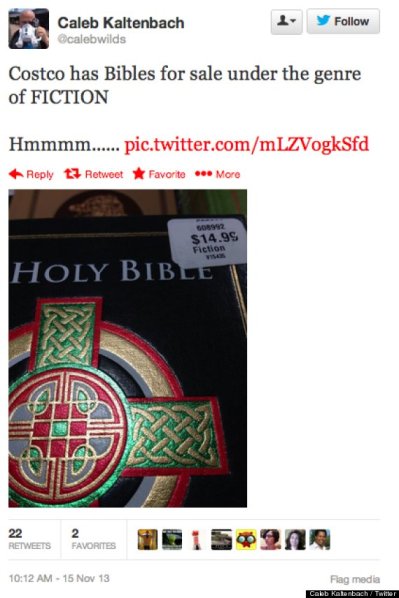That the term “Bible” means something very clear and specific with clearly-defined characteristics and attributes is a widespread assumption.
And it is wrong.
It would make more sense to speak of “Bibles” in the plural rather than “the Bible.” Between Jewish, Eastern Orthodox, Roman Catholic, Protestant, and Ethiopic Bibles there are significant differences. And the range of views regarding the Bible's nature and role is even larger.
Recently Kevin Davis shared a list of some options regarding Biblical inspiration on his blog. Pete Enns and Ken Schenck are among the several bloggers who've recently focused attention on the forthcoming book, Five Views on Biblical Inerrancy. Mike Bird helpfully notes that the book includes the phrase “Don't cry for me Chewbacca.” See too Ken's post on the history of inerrancy.
Rarely do those who discuss the doctrine of Scripture in terms like “inerrancy” ask what the Bible contains, and how we know. What inerrant source tells us inerrantly what inerrant contents to include in it?
Then the challenge is to do justice to the diversity of its contents. And terms like “inerrancy” are problematic once again from this perspective. What does it mean for a poem to be inerrant?
See also Fred Clark's post which characterizes current debates about inerrancy as “Round 2” in the debates about slavery.
On a related note, Jerry Coyne shared a Tweet from a pastor surprised that the Bible had been classified as “fiction” by Costco:

They weren't the first to do so. Matthew Paul Turner shared details about the apology that followed. Thom Stark also discussed it.
The Bible is poorly labeled as any single genre. It is a library, and it certainly contains fiction. But some of it is pure fiction, and some of it is historical fiction, and some of it needs other labels than those.
And so in answer to the question “What's a Bible?” the answer has to be one that does justice to the process by which a collection came about, the diversity of the contents and their genres, and many other facets of the matter.
Consulting reliable sources of information about all these matters is crucial. As Sabio Lantz points out in a recent post, echoing recent discussion here of the Bible Secrets Revealed documentary, anyone can say “experts say” and so it is important to determine what most experts really do say, and not just allow someone else to tell us.













